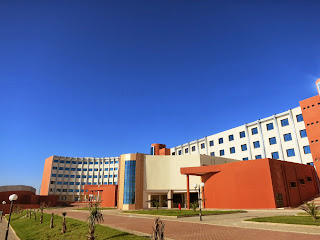These are twelve basic life skills I didn't have before I went to Africa that everyone else in the world seems to have:
- Properly greet people every time I see them (shake their hands and ask about their health, work, life, and family) and always greet people before talking about business, etc. People first!
- Be a good host by welcoming people with snacks and drinks every time they come over (and always make sure to have both of these on hand in case anyone stops by)
- Eat with my right hand without ever touching my fingers to my mouth (or dropping any of the food)
- Clap extremely loud by cupping my hands together
- Woo-looo-looo ululate with my tongue
- Peel a potato without a potato peeler
- Cut an onion without a cutting board
- Wrap fabric around my waist like a skirt without using any pins, clips, or strings
- Turn on an oil lamp
- Cook using a gas tank and change the tank when it's empty
- Bargain for prices
- Dance to Congolais music (it's all about the knees!)












































